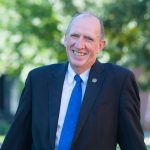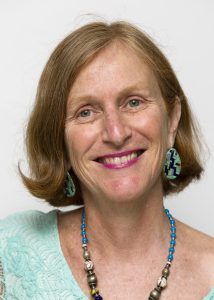Making the Case for Prince Edward Island to be Canada’s First Carbon-Neutral Province
Thursday, October 26, 2017 | 7-9 p.m.
MacKinnon Auditorium, Room 242 McDougall Hall, UPEI Campus
WATCH THE VIDEO
View PowerPoint Slides: Jim Randall | Bob Ashley
With so much in the news these days about monster hurricanes and other unusually severe weather events, people are becoming more and more concerned about the long-term impact of climate change. Living on a small, low land-mass as we do, Islanders feel immediately vulnerable to sea-level rise. And so we ask ourselves what can be done about it; and also, how can we, on our own island, provide a model of positive action for elsewhere.
One possibility would be for us to make a concerted attempt to set an example for others – in Canada and beyond – by becoming Canada’s first carbon-neutral province. How this might be done was the topic of a Public Symposium held at UPEI’s MacKinnon Auditorium on Thursday, October 26th, 2017.
This event was sponsored by UPEI’s Institute of Island Studies, in conjunction with UPEI Research Services and the UPEI Climate Lab. The title of the Symposium was “Making the Case for Prince Edward Island to be Canada’s First Carbon-Neutral Province.”
SPEAKER & PANELISTS
The principal speaker was Dr. Catherine Potvin, a professor at McGill University and associate staff scientist at the Smithsonian Tropical Research Institute. In the wake of the 150th anniversary of the Charlottetown Conference on Confederation, Dr. Potvin was selected as one of 23 women visionaries for the future of Canada. She leads the group Sustainable Canada Dialogues, a voluntary initiative that mobilizes over 80 researchers from every province, with sustainability being at the heart of their research programs. The objective of Sustainable Canada Dialogues is to identify actions designed to have large, viable impacts to help Canadian governments at all levels to make thoughtful and ambitious commitments to greenhouse-gas emission reductions. Though the scale of the global challenge is enormous, more and more individuals, communities, industries and governments are stepping up to the task.

Dr. Potvin was joined by Mr. Bob Ashley, Chief Administrative Officer for the City of Summerside, which has implemented a number of initiatives, including generating its own electricity. His talk, “Summerside’s Renewable Energy Quest,” illustrated the critical value of a community-owned electric utility as an instrument of public energy policy. Other initiatives include storage for intermittent generation such as wind and solar, building a fleet of electric vehicles, implementing a “Living Lab” program, and a “smarter homes” initiative.

Dr. Jim Randall, the Chair of the Institute of Island Studies and UNESCO Co-chair in Island Studies and Sustainability, spoke about the experiences and challenges of other small islands of the world in their quest to achieve a version of “carbon-neutrality.” An economic and social geographer by training, Jim is a Professor in Island Studies and co-ordinator of the Master of Arts in Island Studies program.
The Symposium was chaired by Dr. Adam Fenech, Director of the UPEI Climate Lab.
RETURN TO PUBLIC SYMPOSIUM MAIN PAGE


